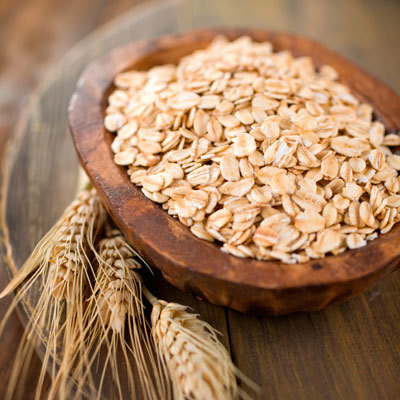 Overcome the fears that inhibit your zest for life
Overcome the fears that inhibit your zest for life Set just a few essential protective limits to what you will try
Bring new passions into your awareness- what intrigues you now?
Learn what to keep and what to discard from new experiences
Crank up the intensity - live life at full tilt!
The dictionary says that zest is the peel of a fruit, like a lemon. Well, we know what that tastes like! I think it's a far, far better thing than that- it's the stuff that makes life worth living, the stuff that lifts anything out of the ordinary and turns it into a wild, crazy , uninhibited frolic. You see people all the time who never heard of it- they are the zombies just going through the motions of life. They talk in monotones, look bored, sigh a lot, and you want to poke them to see if they're alive.
Why would anyone take life at idle speed? Probably fear, and maybe an overdose of common sense. You know, the kind that says, don't run, you could fall; don't speak to that stranger, she might be nasty; don't raise your hand in class, your answer might be wrong. If we listened to that voice, we'd be safe all right, but safe for what? Living with a layer of bubble wrap all around to protect us is not really living at all. You can't see much through it, and you can't taste or smell or feel anything.
Every day you make choices either to go through the motions, or to add that extra bit of energy, attention, and little touch of passion that makes everything you do a little more exciting, a little more alive. Sure, you get bruises that way, and heartbreak, too, but you never doubt that you are alive, and you don't feel as if you're waiting for something to begin - it's already here.
Ask someone what their favorite memory is, and I'll bet you anything that the memory that brings a smile, and maybe a tear, will be of something done at full tilt, of dancing to life's music, not sitting on the sidelines. It's a delicate balance, to be sure, to avoid the madness of rushing full speed into disaster, and yet to be raw, open, and ready for all that life has to offer. If there's a neat formula, I don't know it, but I do want to share a few tips with you.
First, keep your limits and safeguards very simple. If something is illegal, and you can't justify it on moral grounds, don't do it. If something is life-threatening, and you don't have the skill to dare it anyway, don't do it. If something will cause great harm to others, don't do it. If something will break the bank, and make you dependent on others for the rest of your life, don't do it. That's it.
Otherwise, the world is yours to take on, wrestle with, and love. Whenever an opportunity comes along, take it. When life asks if you can do something, say "Sure!". And so I've gotten to travel the world, get an education, teach, write, make art, make love, make music, raise children, learn languages, share my soul with strangers, learn about others' deepest hopes and fears, embrace the beauty of the world, and cook a mean lasagna. And I can't wait to see what's next!
Second, keep your hunger for experience very much in your awareness. Once a week or so, try a food you've never eaten before. When you go to the mall, stop in a store and listen to a CD by a group you've never heard of, maybe one from Asia or Africa. Walk home by a slightly different route once in awhile. Watch a TV show in Spanish, Wear a color you thought you didn't like, and see what your friends say.
Sing something, grow something, cook something, write something, draw something, build something. Join a new club or after-school sport. Ask lots of questions, and listen to the answers. Think about it all, keep the things that make you feel stronger, smarter, more hopeful, curious for more. Discard the rest, or save those for another try later on.
Third, crank up the intensity. That doesn't necessarily mean louder and brighter, but it might. Mostly, it means whatever you're doing right now, pay attention to it, focus on it, put your whole self into it. You get out of most things whatever you put into them. Seems obvious, so why not take advantage of that rule and give it all you've got?
Keep a list of "bests", and ask others for their choices for "bests" - best chocolate ice cream, best sunset, best Christmas carol, best vacation, best everything. A little more quietly, keep a list of worsts - worst cookies you ever made, worst fight with your sister, worst day of the year, and so forth. Zest is mostly, but not all, about the good stuff. It's about wringing the most from every experience; the most learning, the most feeling, the most growth.
Fourth, keep falling in love with life. In my opinion, it's a crime to go through life in a state of "like", pleasant but not passionate. What a waste of human feeling, potential, and talent. If you're feeling a little bored and discouraged, do something adventurous. Adventure will put you in the right frame of mind, so never turn it down.
Go into each day with an attitude of expectation; knowing something wonderful is about to happen, and you're about to meet some fascinating people. Your expectation radiates a kind of energy that actually brings these things to you. Whether you're expecting something terrific or something terrible, you're more likely to get exactly what you expect than the opposite. It has to do with your body language and its effect on others. So why not make that rule work in your favor, too?
Here in Mexico, the expression for "I like" is "Me gusto!" That's it exactly, gusto. In English, the word means hearty enjoyment, keen relish, delight. What's not to like? Or, more to the point, what's not to love?
About the Author:
Dr. Linda Abbott Trapp is the author of Intentional Living; Lessons from the Tree of Life, and the award-winning Letters to My Granddaughters; Insights and Inspiration for a Life Journey. She is a former Dean at the California School of Professional Psychology, and has presented more than 3,000 seminars in the U.S. and abroad.










